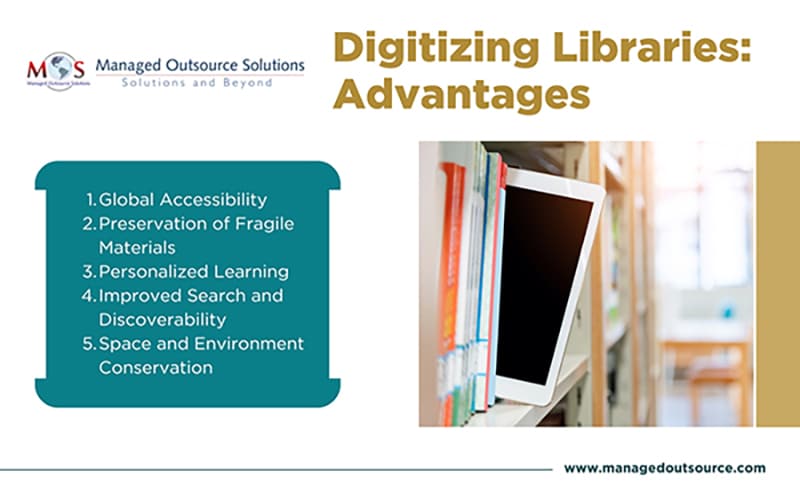In an age where technology is continuously transforming our daily lives, libraries are not left behind in the digital revolution. The digitization of library resources has emerged as a vital trend, reshaping how libraries operate and serve their communities. By embracing digital solutions, libraries can enhance their efficiency, accessibility, and preservation capabilities. One key component of this transformation is the use of document scanning services, which play a pivotal role in modernizing library systems.
A recent report by NMC, a community of experts in educational technology, freely available online at nmc.org, highlights the trends that are giving a new definition to institutional libraries. Among the strong trends identified are increased emphasis on mobile content delivery, efficient managing of research data and rethinking the use of library spaces. The trends highlighted are:
- Libraries are focusing on developing mobile-friendly sites and apps
- The drive to ensure high-quality user experience
- Increased focus on the management of research data
- Call for a change in storing and publishing research data, and ensuring that the content is highly searchable
Libraries Working Hand-in-Hand for Optimum Performance
Libraries such as the British Library are working hand-in-hand with Google and other commercial partners as well as other libraries to further their digitization projects. Working with cutting-edge companies that know the ins and outs of digital conversion is beneficial and will make library collections accessible to far more people than the actual members a library may have. There is a challenge that exists though, namely, books that are already available may be scanned again only to create duplicate holdings. This risk can be minimized by working together closely. Libraries can review their existing holdings as well as each other’s to avoid scanning the same book again and again. Catalogues can be compared to find out the extent of overlap between their collections.
- Global Accessibility: The democratization of knowledge is one of the main benefits of digitalization. Geographical boundaries are eliminated by digital libraries, which provide information access to everyone, wherever in the world. The ability for researchers, scholars, and students from all over the world to examine the same resources at the same time fosters an international flow of ideas.
- Preservation of Fragile Materials: Rare or delicate documents, in particular, lose their quality with time. Libraries make sure these items are preserved for future generations by digitizing them. Digital formats protect priceless historical and cultural objects and remove concerns about physical loss or destruction.
- Personalized Learning: Digital libraries facilitate customized education. Searches can be customized by users based on their choices, interests, and learning objectives. This flexibility gives researchers, students, and lifelong learners the chance to customize their educational paths.
- Improved Search and Discoverability: Digitizing library resources provides advanced search and discovery features. Users may locate specific information quickly with keyword searches, which improves the effectiveness of the research process. Furthermore, users can more easily locate relevant materials due to the ease with which items can be categorized and classified thanks to metadata and tagging systems.
- Space and Environment Conservation: As collections get larger, physical libraries frequently struggle to find enough space for them. Large amounts of storage space are no longer necessary because of digitization, making more space available for various uses. Additionally, cutting back on paper use helps protect the environment and aligns libraries with sustainable practices.
National Archives in the USA Is Getting Digitized
The US Archivist, Colleen Shogan, spoke about the National Archives’ use of AI and digital transformation in October 2023 at the Seattle Public Library as part of a larger public discussion. She stated that the Archives is digitizing documents to increase their online accessibility. There are currently around 13.5 billion pages of records total; of those, about 250 million are available digitally. The objective is to eventually digitize 500 million records, then raise this to 300 million. Originals are scanned and then maintained. Furthermore, more records that were “born digital” and will stay in digital format rather than needing to be scanned in from print papers are being accepted and preserved by the National Archives.
The trend of digitization is transforming libraries into stronger and more efficient institutions. Document scanning services play a crucial role in this evolution, providing the means to preserve, access, and manage library resources in digital format. By embracing digitization, libraries can overcome traditional limitations, enhance accessibility, optimize space, and improve their overall efficiency. As libraries continue to adapt to the digital landscape, document scanning services will remain the cornerstone of their modernization efforts, helping them to serve their communities more effectively and sustainably.





